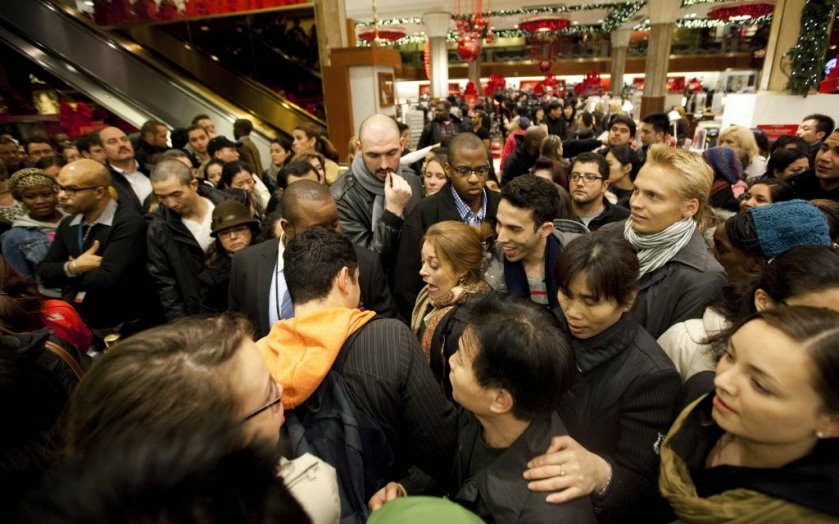Black Friday is a long standing American tradition. But what is it and how did it get to the UK shores?
What is Black Friday?
Black Friday is a day of mass sales and consumerism in America, often charted as the start of the holiday shopping season. The event occurs on the Friday after Thanksgiving (which falls on the last Thursday of November). Bargain hunters go forth and seek out deals after stuffing their gobs with turkey. Retailers such as Best Buy, Walmart and online shops all slash their prices in the hope of cashing in and making large profits.
What is behind it?
Black Friday has its roots in 1950s Philadelphia. Apparently local police officers started to use the term to describe the busy streets and the smog created by traffic of people flocking to watch a local Army vs Navy American Football game. In the 1980s television stations and advertisers used the day to attract shoppers out on this holiday and spend their cash.
Contrary to what has been circulating though social media recently the tradition has nothing to do with slavery and has nothing to do with slave traders selling slaves at discounted prices. Some believe the term has come from the time in the year that shops make profit and move from the red (loss making) to the black (profit making).
Why is it here?
Black Friday is characterised by long queues, early starts and sometimes scenes of hysteria and violence. Black Friday was brought to the UK by Amazon and Asda in 2010, since then more and more retailers have adopted the practice. The main reason why this has been absorbed by retailers across the pond is that businesses can smell the pound signs. 2013 saw the day come into its own in the UK, charting big sales for many retailers.
A downside to all of this bargain hunting is that it sometimes causes crazy scenes of not very British like queueing and madness. Some shops opened at 12 midnight with flocks of people lining up, literally stepping on and over each other to get that marked down plasma screen TV.
Getty Images
These scenes are not what people are used to in this country. With reports of retailers like ASOS inflating their costs in the run up to the day and then offering 30% discounts, leaving prices sometimes higher than the original ones, some people are less than happy.
Who cares?
Some people feel that the day promotes mass consumerism and greed. I'm a lover of bargains myself however, queueing, fighting and loosing sleep over some apparent lower priced goods is not really how I like to spend my time. Jumping on the discount bandwagon doesn't really make sense to me especially when it hasn't been made relevant to this audience. As Brits don't celebrate Thanksgiving, having the day after it as some kind of sales paradise is slightly strange.
What's more, if retailers are seeing this as an excuse to hoodwink and trick consumers into thinking they are getting a bargain when they are not, then i'm definitely not a fan. Unfortunately Black Friday does look like it's here to stay so lets hope next years affair is a bit more civilised? I doubt it.







No comments:
Post a Comment